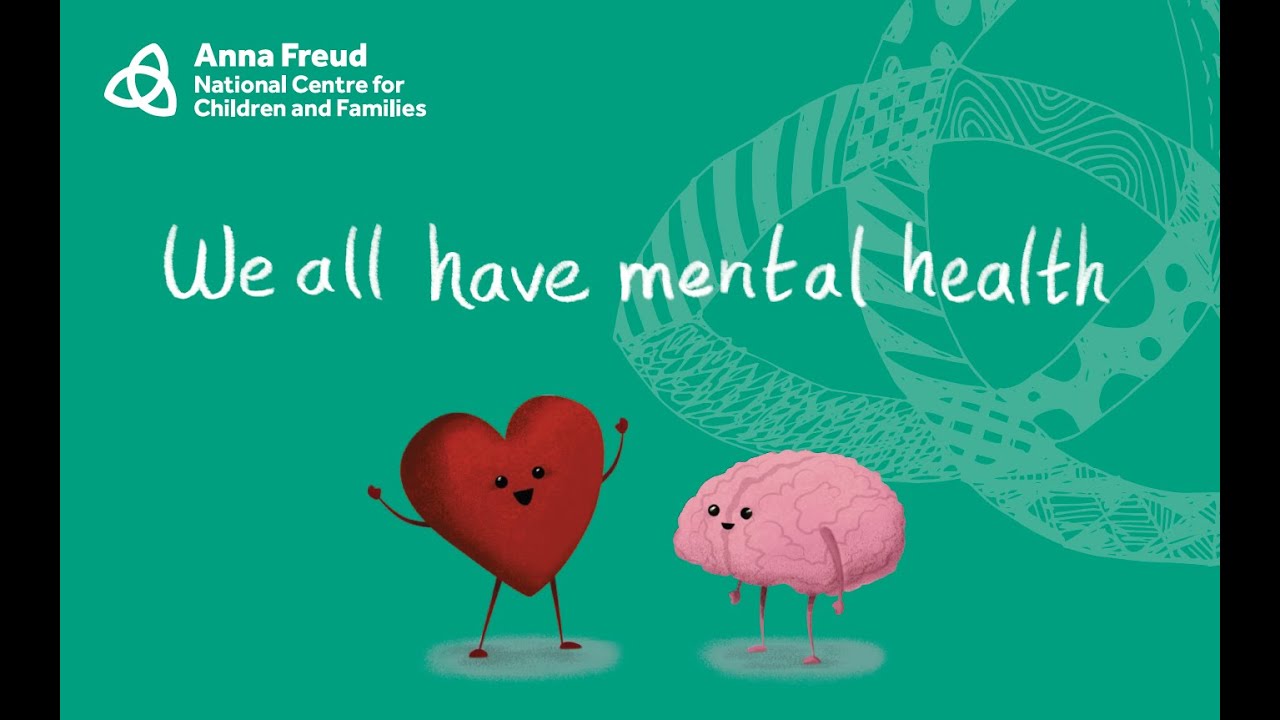Understanding The Importance Of Mental Health In Children - A Guide For Parents And Caregivers
Understanding the importance of mental health in children is crucial in ensuring their overall well-being. Mental health is an integral part of a child's development and can affect their behavior, emotions, and social interactions.
Author:Karan EmeryReviewer:Katharine TateMar 03, 202350 Shares1.1K Views

Understanding the importance of mental health in childrenis crucial in ensuring their overall well-being. Mental health is an integral part of a child's development and can affect their behavior, emotions, and social interactions.
As parents, caregivers, and educators, it is our responsibility to recognize the signs of mental health issues and take steps to address them. This article will explore the significance of mental health in children and the ways we can support their mental well-being.
What Is Mental Health In Children?
Mental health in children refers to the emotional, psychological, and social well-being of children and their ability to cope with the challenges and stressors of everyday life. Good mental health enables children to form healthy relationships, learn, and grow, while poor mental health can lead to a range of issues, including social and academic problems.
Mental health in children encompasses a range of factors, including their ability to express their emotions, form relationships with peers and caregivers, and cope with stress and adversity.
Children with good mental health have a positive outlook on life, a sense of purpose and meaning, and a healthy balance between social, emotional, and cognitive development. They are resilient and able to cope with challenges, adapting to new situations and developing healthy coping mechanisms.
Conversely, children with poor mental health may struggle with emotional regulation, have difficulty forming relationships, and experience a range of mental health issues, including anxiety, depression, and behavioral disorders.
Mental health issues in children can have long-term consequences, affecting their academic performance, social development, and overall well-being. It is essential to recognize that mental health in children is not a static state, but a dynamic process that changes over time.
Factors such as genetics, environment, and life experiences can all influence a child's mental health. Understanding the importance of mental health in children, caregivers, parents, and educators play a crucial role in promoting positive mental health outcomes in children, by creating supportive environments, fostering positive relationships, and recognizing the signs of mental health issues.
Understanding The Signs Of Mental Health Issues
Recognizing the signs of mental health issues in children is crucial in addressing and treating them. It is essential to note that every child's experience is unique, and mental health issues may manifest in different ways. However, some common signs can indicate that a child may be struggling with their mental health.
Changes in behavior, such as increased aggression, irritability, or mood swings, may be indicative of underlying mental health issues. A child who is experiencing mental health issues may also have difficulty sleeping, either difficulty falling asleep or staying asleep, or they may have changes in appetite, such as decreased or increased appetite.
A loss of interest in activities that they previously enjoyed may also indicate mental health issues. Mental health issues can also affect a child's academic performance, and they may struggle to concentrate and learn, leading to poor academic outcomes.
It is essential to understand that these signs do not necessarily mean that a child has a mental health issue, but they should prompt caregivers to seek further evaluation and support. Addressing mental health issues early is essential in providing effective treatment and support and preventing long-term consequences, such as poor academic performance, substance abuse, and social isolation.
Caregivers and educators should work collaboratively to recognize and address signs of mental health issues in children, ensuring that they receive the support and care they need to thrive.
The Importance Of Early Intervention
Early intervention is critical in addressing mental health issues in children. Untreated mental health issues can lead to long-term consequences, such as poor academic performance, substance abuse, and social isolation.
Understanding the importance of mental health in children and early intervention can prevent these consequences and promote positive mental health outcomes.
Ways To Promote Positive Mental Health In Children
There are several ways parents, caregivers, and educators can promote positive mental health in children. Here are some effective strategies
Encourage Healthy Habits
Promoting healthy habits, such as regular exercise, a balanced diet, and sufficient sleep can support positive mental health outcomes in children.
Create A Safe And Supportive Environment
Providing a safe and supportive environment can help children feel secure and reduce stress levels.
Foster Positive Relationships
Understanding the importance of mental health in children and building positive relationships with children can promote their emotional well-being and social skills.
Teach Coping Skills
Teaching children healthy coping skills, such as deep breathing, mindfulness, and positive self-talk, can help them manage stress and regulate their emotions.
Seek Professional Support
If a child is experiencing mental health issues, seeking professional support can be essential in providing effective treatment and support.

We All Have Mental Health
Impact Of Mental Health On Child Development
Mental health is a critical aspect of a child's development, and its impact cannot be overstated. Mental health issues in children can lead to a range of developmental and social problems, affecting their overall well-being.
Mental health issues such as anxiety, depression, and behavioral disorders can interfere with a child's social, emotional, and cognitive development. Children with mental health issues may struggle to form relationships, interact with peers, and cope with stress, leading to long-term consequences.
For instance, children with anxiety may struggle with separation anxiety, which can affect their ability to form healthy attachments and relationships with caregivers and peers. This can lead to social isolation and difficulties in forming close relationships, which are crucial for healthy development.
Children with depression may struggle with low self-esteem and feelings of hopelessness, leading to a lack of motivation and decreased academic performance. Children with behavioral disorders may struggle with impulsivity and emotional regulation, leading to disciplinary problems and academic challenges.
Mental health issues can also have a profound impact on a child's physical health. For instance, children with anxiety and depression may experience sleep disturbances, leading to fatigue and decreased energy levels. Additionally, mental health issues can lead to physical health problems, such as headaches, stomachaches, and other psychosomatic symptoms.
The impact of mental health issues on a child's development is significant, and early intervention is critical in addressing these issues. Providing support and treatment for mental health issues can help children develop healthy coping mechanisms and social skills, promoting positive mental health outcomes.
Caregivers, parents, and educators can work collaboratively to promote positive mental health outcomes in children, by creating supportive environments, fostering positive relationships, and seeking professional support when necessary.
People Also Ask
Why Is Mental Health Important For Children?
Mental health is important for children because it affects their overall well-being, development, and ability to learn and interact with others.
How Can Parents And Caregivers Support Children's Mental Health?
Parents and caregivers can support children's mental health by providing a safe and nurturing environment, encouraging open communication, and seeking professional help if needed.
What Are Some Warning Signs Of Mental Health Issues In Children?
Some warning signs of mental health issues in children include changes in behavior, mood, sleep patterns, appetite, and social interactions, as well as difficulty coping with stress or emotional challenges.
How Can Schools And Communities Promote Positive Mental Health In Children?
Schools and communities can promote positive mental health in children by creating supportive and inclusive environments, offering counseling and other mental health services, and reducing stigma and discrimination around mental health issues.
What Are Some Benefits Of Addressing Mental Health In Children Early On?
Addressing mental health in children early on can help prevent more severe problems later in life, improve academic and social outcomes, and promote overall well-being and resilience.
Conclusion
Understanding the importance of mental health in children is crucial in promoting their overall well-being. As parents, caregivers, and educators, it is our responsibility to recognize the signs of mental health issues and take steps to address them.
Early intervention can prevent long-term consequences and promote positive mental health outcomes. By promoting healthy habits, creating a safe and supportive environment, fostering positive relationships, teaching coping skills, and seeking professional support when necessary, we can support children's mental health and help them thrive.

Karan Emery
Author

Katharine Tate
Reviewer
Latest Articles
Popular Articles
